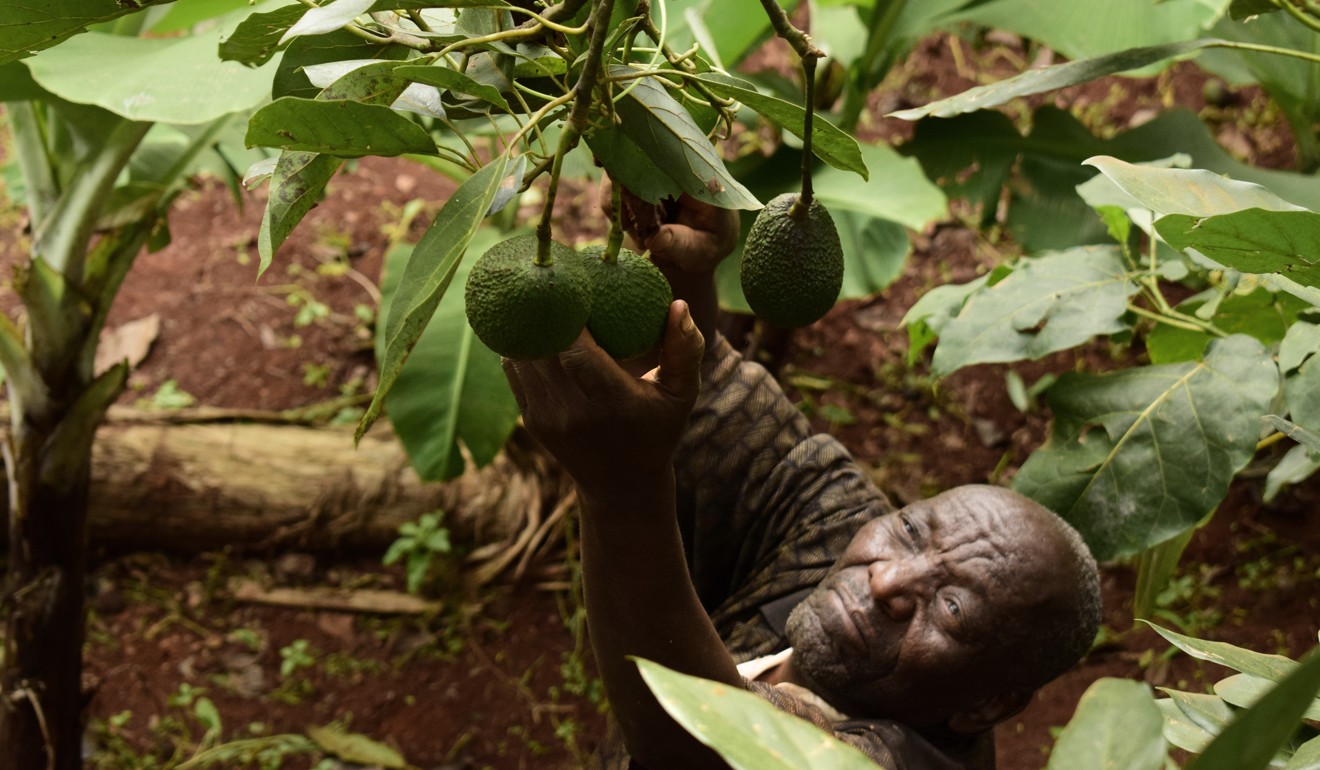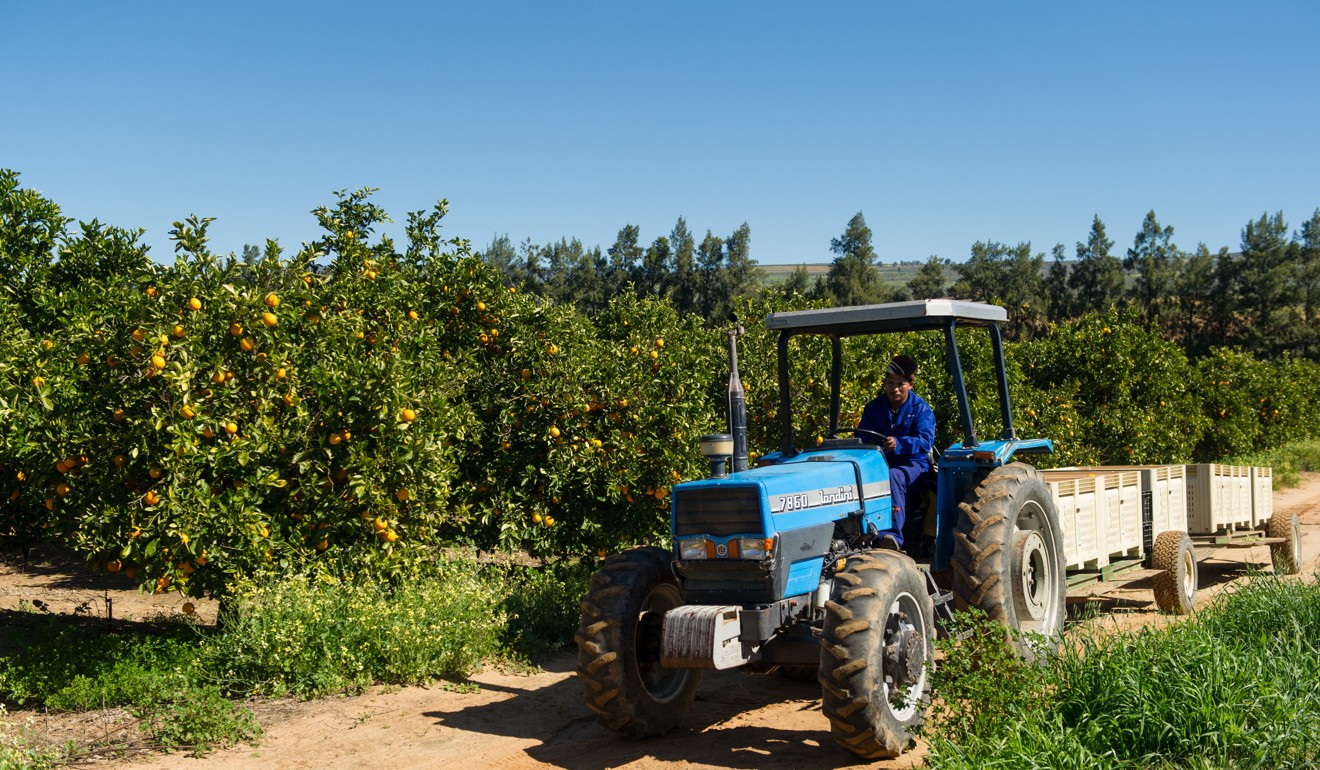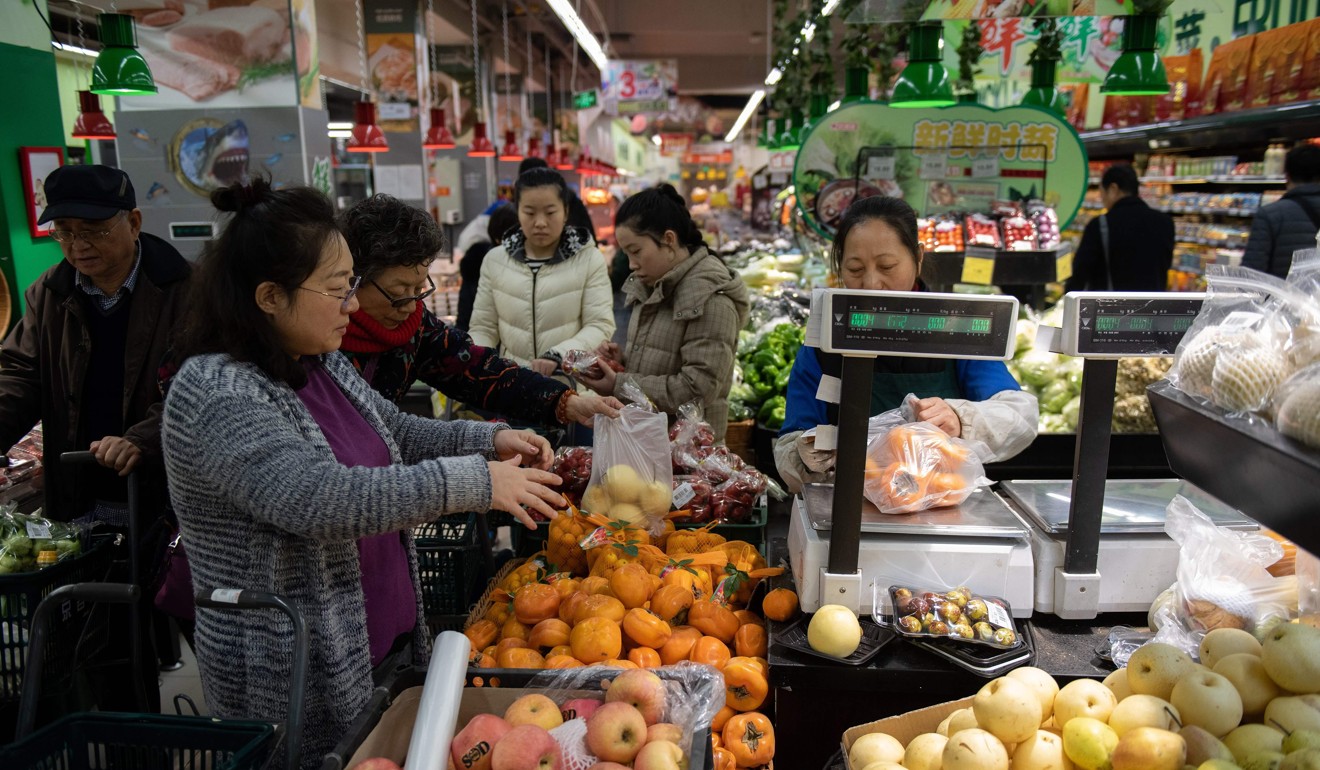
The avocado strategy: how Africa aims to rebalance trade with China
- From Ethiopia to Namibia, countries on the continent hope to expand their focus from natural resources in a drive to narrow their trading gap with China
- But barriers must be overcome to get goods from African farms to Chinese tables
When more than 50 African countries took part in the first China-Africa Economic and Trade Expo in China in June, they were on a mission: to tap into the massive Chinese market.
Among the exporters at the show in the central Chinese city of Changsha were Kenyan companies promoting cut flowers and Rwandan processors selling fruit juices.
With China exporting far more to the continent than it imports from it, African nations are trying to restructure their trading relationship with the Asian giant and narrow the huge trade deficit that is in China’s favour.
Trade between China and Africa has grown twentyfold since the turn of the millennium but in 14 of those years there has been a Chinese surplus.
China’s imports of African goods are dominated by natural resources such as crude oil, copper, cobalt, iron ore, diamonds, gold and titanium, which it buys to meet its industrial and manufacturing needs. In return, Africa imports machinery, electronics and manufactured consumer goods.
But now more African countries – from Ethiopia to Namibia – are trying to move up the export value chain, a shift that will involve working out what Chinese consumers want and finding ways to get it to them.
Africa’s trade imbalance with China was one of the big issues on the agenda when leaders met for the China-Africa summit in Beijing last year.
South Africa President Cyril Ramaphosa spelled out the economic implications for the continent when he said that China and Africa should work to balance the structure of trade between them.
“Much of what is exported from Africa are raw materials and primary products; much of what is imported from China are finished goods,” Ramaphosa said.
“We export to China what we extract from the earth; China exports to us what it makes in its factories. This limits the ability of African countries to extract the full value for their abundant natural resources and to create work for their people.”
The response was an action plan in which Beijing committed to increase China’s imports of non-resource products from African countries, particularly value-added agricultural and industrial goods.
“China will launch a trade facilitation initiative. We have decided to increase imports, particularly non-resource products, from Africa,” President Xi Jinping said at the summit. “We will hold, regularly, marketing activities for Chinese and African brand products.”
In Kenya, tea, cut flowers and coffee are some of the country’s biggest foreign exchange earners, with the premium products filling shelves around the world. But these goods don’t feature among China’s top imports. Instead, mining — a tiny part of the Kenyan economy — is the basis of the trading relationship. Of the US$127 million worth of goods that China imported from Kenya in 2017, 63 per cent was titanium ore and other minerals such as niobium, tantalum, vanadium and zirconium.
But one fruit could be about to make a difference. Kenya, Africa’s biggest exporter of avocados, has signed an agreement on food, plant and animal safety that will let it export various farm products, including avocados, to the expansive Chinese market.

Driven by interest in its health benefits, the fruit is growing in popularity in China, from a largely unknown product less than a decade ago to be a popular option in Chinese supermarkets today.
That popularity is reflected in the numbers. China imported just 31.8 tonnes of avocados in 2011, rising to more than 36,000 tonnes last year – but most of those were shipped from Latin America.
This growth is what Kenyan producers are hoping to tap into.
In April, China and Kenya reached an agreement to allow the export of frozen avocados to China.
“China is now ready to import Kenyan frozen avocados. The two sides are negotiating an export agreement for fresh avocados,” the Chinese embassy in Nairobi said.
But there’s a catch. For Kenya to gain access to the Chinese avocado market, it has to meet stringent rules including freezing the fruit during export, which means farmers will need to invest in chillers.
Kenyan Trade Minister Peter Munya said the deal would also allow the export of other Kenyan farm produce to China, including French beans, cut flowers, herbs, mangoes, peanuts and meat.
“Kenya seeks to ensure full market access for all the products by the end of the year,” Munya said.
Kenya is just one of nearly a dozen African countries that have been given the green light to export certain products to China.
South Africa has also gained approval, with its fruit growers aiming to capitalise on the China-US trade war to make bigger inroads into China.
In June, South Africa loaded its first “break bulk” shipment of citrus to China and Japan after the two countries reviewed a protocol. The deal allows for the bulk shipment of citrus to China with co-loading to other countries, meaning that sellers can use a single ship to offload at a number of countries, serving more countries in the region.
The Durban-based Citrus Growers Association of Southern Africa said that it was optimistic that citrus exports to China would grow but that barriers remained.
“In 2018, 140,000 tonnes of citrus – excluding lemons – was exported to China,” the association’s chief executive officer Justin Chadwick said.
“The reason for the lack of lemons is that the protocol [still] requires a cold disinfestation treatment since lemons do not take cold treatment well. We are working with the [South African] department of agriculture and China in reviewing the protocol.”

South Africa had also resumed beef exports to China after Beijing lifted a ban imposed in January because of an outbreak of foot-and-mouth disease, Lin Songtian, the Chinese ambassador to South Africa, announced on Tuesday.
Other products are also playing their part in the trade diversification process. Namibia won big when it started exporting beef to the Chinese market in March after years of negotiations that started in 2005. Next door, landlocked Botswana might also start exporting its beef and by-products to China by October after the two countries sealed an agreement.
In the Horn of Africa, China has agreed to allow imports of arabica coffee from Ethiopia, the world’s sixth largest coffee grower and the biggest producer on the continent. Ethiopia is also expected to start selling soybeans in China as the Asian country moves to reduce its reliance on imports from the United States.
Rwanda, another coffee producer in Africa, signed a deal with the Chinese e-commerce giant Alibaba, to help farmers sell coffee and other products through Alibaba’s Tmall marketplace. Alibaba owns the South China Morning Post.
Benjamin Nkurunziza, head of marketing at Rwandan Farmers Coffee, one of the companies using Alibaba’s online marketplaces, said the Chinese market presented better prospects.
“We supply coffee up to their warehouses and then Alibaba manages the online sales and distribution,” Nkurunziza said, without providing numbers. “We expect this to grow.”

Moritz Weigel, founding director at Germany-based China Africa Advisory, said that Africa should focus on adding value to existing exports, both resource and non-resource products.
For non-resource products, countries should focus on brands, rather than commodities, such as exporting products of a premium coffee brand, rather than raw coffee beans, he said.
In addition, exporters need to sharpen their knowledge of China’s growing consumer market, market trends, consumer preferences, market entry challenges and opportunities.
“African producers should develop a market-entry strategy for China and look at opportunities in the short- and long-term, including via e-commerce platforms,” Weigel said.
“African governments should increase their export promotion efforts towards China and provide more support to domestic producers.”
Other obstacles include a lack of knowledge about procedures such as required standards and certification, and gaps in understanding about business culture and language. There are also issues to do with financing, economies of scale and inefficiencies in logistics and customs on the African side.
Nevertheless, for some countries, there is huge potential for growth ahead.
“Africa will play an increasingly important role for agricultural imports in the future,” Weigel said.

